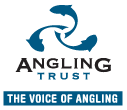Since their introduction in the 1950s at the hands of the local water authorities and the Angling Times, barbel have come to dominate the middle and lower reaches of the Bristol Avon. Venues like Lacock, Peckingells and Claverton have achieved national recognition, and specimens in excess of fifteen pounds have been caught.
Editorial List
Living on the Hampshire, Dorset border, I am fortunate to have an almost infinite number of choices when it comes to angling location.
You wouldn’t use a sledgehammer to crack a nut or a flamethrower to cook a steak. So why do anglers of all disciplines use such heavy tackle to land relatively small fish? It’s time to put the fun back into fishing and join the light tackle revolution says Dominic Garnett.
Historically the Dorset Stour between Blandford Forum and Wimborne Minster has provided a highly valued coarse fishery. However in recent years catches have fallen dramatically and poor fish recruitment has been detected by the Environment Agency’s monitoring teams. This has led to local angling clubs, Landowners, the Barbel Society and the Environment Agency to work together to develop a strategy to improve the resident fish stocks. This strategy has developed into a two pronged approach.
Chalk rivers are recognised as being one of the most managed types of river system in the UK, having suffered from excessive dredging and channel re-alignment for land drainage purposes, resulting in watercourses which are too wide and deep for natural river flows. This has destroyed habitats, damaged fish and vegetation communities, silted up gravels and disconnected the river with the flood plain with the resultant loss of wetlands.

CALLS FOR PROTECTION OF FISH STOCKS GROW LOUDER AS POPULARITY OF SEA ANGLING SOARS
Sea angling is a fast growing pastime in England and Wales with 1.9 million men, women and children over 12 taking part last year.
In a report out this week, the Environment Agency says this is a rise of 26 per cent since the Government’s Drew Report in 2003 when the figure was 1.5 million including children under 12.
Russell Symons, MITD
The Southwest Peninsula's rugged coastline is washed by the warm waters of the Gulf Stream for much of the year. This combined with the milder climate of this wonderful part of the country, provides a rich and varied habitat for the prolific number of species prized by the sporting Sea Angler.
Supplied by Mr. N Athay of Atlantic Tackle
The south-west of England has many fishing harbours and it is here that many anglers are to be found. All the harbours will contain fish at certain times. Some will be small fish; ideal for children or the beginner, whilst there may be better quality fish for the more serious angler.
by Malcolm Gilbert of Ammo Baits
Fisheries Liaison Representative for The National Federation of Sea Anglers & European Liaison Officer of The Bass Anglers Sportfishing Society.
